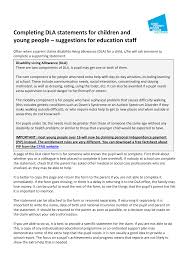The term pre-need implies that there is a need for care prior to the onset of a medical condition. Therefore, someone with a physical disability may be placed in a situation where they would otherwise be unable to afford the cost of medical treatment. Persons with disabilities have to have income protection in addition to insurance coverage. Financial assistance or disability care can be provided through a variety programs.
Medicare & Medicaid Program Flexibility: Elderly and Disabled
This is the term used to describe the various initiatives and plans that the federal government has created to help people with disabilities live a more normal lifestyle. The Medicare and Medicaid plans primarily fund the disability care components. The former deal with long-term, inpatient care while Medicaid covers outpatient care. A benefit called SSDI or Social Security Disability Insurance covers the cost of inpatient and outpatient care for the Hawthorn NDIS person. To meet their needs, an disability support services will need both Medicare AND Medicaid.
Medicare & Medicaid Program Flexibility: Elderly and Disabled
States have taken on many roles to address the need for disability services in the community of disabled people. One such role is that of the Early Education Program. This component of the health plan would include working with parents to ensure that children attending early childhood centers have as many opportunities and connections as possible with other children their age. Many Early Education centers are located in the area and can be a great resource for families with children who are at high risk of developing emotional or developmental problems.
Medicare & Medicaid Program Flexibility: Elderly and Disabled
In terms of implementing the disability care component of the New Hampshire’s Health Choice Act, the Department of Health and Human Services has appointed William R. Drayton, Jr. as the state’s Commissioner of Social Services. Drayton serves as the commissioner for the month of January, before moving up to the permanent position of commissioner in February, 2021. According to Globe News, Drayton’s term will see him responsible for the implementation and maintenance of the state’s comprehensive healthcare plan, CHIP (comprehensive medical approach). He will be responsible for ensuring that all New Hampshire residents have access to quality health care services regardless of income level.
Medicare & Medicaid Program Flexibility: Elderly and Disabled
- Globe News reports that “the commissioner will be responsible to oversee a system that allows residents applying for disability benefit benefits to choose from one of three options: The state-administered, private inpatient facility; Federally funded Medicaid program; Or the state’s social shelter agency.” Inpatients who choose to remain in an inpatient bed must sign a form acknowledging that they have received assistance from a nurse or doctor in order to receive their benefits. The forms do not need to be filled out if someone chooses the state-administered private inpatient room, but they must list a doctor’s contact information. Residents cannot use the Medicaid program or social housing unit unless they have completed an application and shown proof of medical assistance through a government form.
Globe News reports that “dr. Turner’s office has been stocked up with bottled water, energy drinks, and other supplies since he assumed control. There are plans for more police lights to be purchased, a website created and bulletproof vests for officers to be purchased. There is even talk of putting in motion plans to turn a turner’s garage into a mini prison, where drifters would be housed.” He is also researching the possibility of purchasing body-skills courses for teachers, nurses, and emergency staff. He will partner with two similar departments, the Department of Transportation (and the Department of Health) to create a transportation app that is free for iPhones and other smart phone users.
I spoke with Dr. Dixson and learned that he is currently working on a new program that will utilize tax incentives and social tariffs in order to make it affordable for the elderly and disabled to live. His office is currently developing a proposal to make it easier to purchase a vehicle for those who are in need of financial assistance. To apply for a license, disabled people must wait six months after being diagnosed. Disability Blog says that this waiting period is costly and arbitrary. It costs almost $3000 every year that licenses are active. Dr. Dixson wants to abolish that rule and create a program in which motor impairment sufferers could apply for a license immediately, without having to wait six months.
According to disability advocates the program is expected to bring national attention and awareness to fuel poverty, which is a growing national problem. According to the Environmental Protection Agency fuel poverty is a “significant environmental and health problem” where families cannot afford fuel for at most one year. Representative Dixson’s efforts and those of his staff will hopefully spur the government and private sector to work together to address this grave problem that plagues our country.